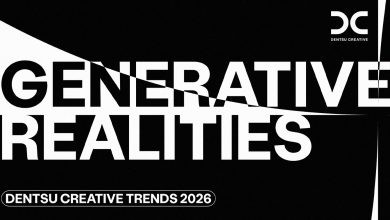TOKYO, JAPAN – Dentsu Inc. (Head Office: Minato-ku, Tokyo; President & CEO: Hiroshi Igarashi) announced today that its New Social Design Engine and Dentsu Team SDGs collaborated to conduct the company-wide Ethical Consumption* Survey 2020, with a view to suggesting ways of resolving social issues. It targeted 1,000 men and women nationwide, from teenagers to people in their 70s.
In addition to awareness, empathy, and willingness to practice overall ethical consumption, the survey made possible the analysis of consumer awareness trends and expectations in different industries (11 industries), as well as future intentions and behaviors. As each industry provides ethical products and services, we aim to clear bottlenecks on the consumer side, and support efforts to realize a better society.
Key Survey Findings
- More than 50% of respondents believe that “the provision of ethical products and services will improve a company’s image.” One in four respondents is familiar with the term “ethical consumption.”
- In the energy (electric power/thermal power/water supply), financial, and travel industries, there is a gap between current awareness and anticipated value, with high expectations for upcoming efforts in the energy industry. The survey results with the highest response were those indicating responders’ intention to consume renewable energy.
- The food industry ranks first in terms of purchasing experience and intention to consume ethically. In the electric power/thermal power /water supply, furniture, and home appliance industries, many consumers indicated their intentions, but had no purchasing experience. Thus, opportunities must be created and reasons found if people are to engage in ethical consumption.
- Among the types of ethical consumption, “food loss,” “renewable energy,” and “local production for local consumption” rank highest in terms of awareness, empathy, and intention to implement.
- For consumers to purchase ethical products, they must feel right about the “price” and “product merit.” Appropriate pricing and well-founded explanations help promote ethical consumption.
- Approximately 30% of respondents have become more aware of ethical consumption due to the impact of COVID-19.
Details of Findings
(1) More than 50% of respondents believe that “the provision of ethical products and services will improve a company’s image.” One in four is familiar with the term “ethical consumption.”
Fifty-four percent responded that “the company image would improve.” The highest percentage of those saying this were women aged 40-59. The fewest were men aged 25-39.
“Ethical consumption” has a recognition rate of 24.0%. Of those individuals, 5.7% answered “I know what it means” and 18.3% answered “I’ve heard about it.” Recognition was relatively high among Millennial and Generation Z men and women. Men aged 16-24 and women aged 25-39 have the highest recognition rates, and men aged 40-59 the lowest recognition rate.
Graph 1. Ethical Consumption Name Recognition
(2) In the energy (electric power/thermal power/water supply), financial, and travel industries, there is a gap between current awareness and anticipated value, with high expectations for upcoming efforts in the energy industry. The largest number of responses, according to the survey results, indicate respondents’ intention to consume renewable energy.
Respondents appeared to be under the strong impression that ethical efforts were already being made in the food (38.1%), automobile (23.4%), and daily necessity (21.3%) industries. At the same time, there is shown to be a large gap between current awareness and expected value, with high expectations for upcoming efforts in the energy (electric power/thermal power/water supply), financial, and travel industries.
Graph 2. Ethical Consumption Efforts and Expectations, by Industry
In the energy (electric power/thermal power/water supply) industry, the highest responses regarding intended consumption were for “renewable energy” (29.2%), “energy with low CO2 emissions” (26.2%), and “energy from companies engaged in forest conservation and other community conservation efforts” (20.3%). The greatest interest was shown by men and women aged 60-79, while men aged 16-24 and 25-39 showed relatively little interest.
(3) The food industry ranks first in terms of purchasing experience and intention to consume ethically. In the electric power/thermal power/water supply, furniture, and home appliance industries, many consumers intend to consume ethically, but lack the experience of doing so. Thus they require the need, an opportunity, and a reason to engage in ethical consumption.
The food, automobile, and daily necessity industries experience the most purchases, while the food, automobiles and home appliance industries account for the greatest intention to purchase. There are also large gaps between actual purchase experience and purchase intention, with high expectations for the future in the electricity/thermal power/water supply (22.3 percentage points), furniture (21.2 percentage points), and home appliances (19.6 percentage points) industries.
Note: Numerical values indicate gaps.
Graph 3. Ethical Consumption Purchase Experience/Purchase Intention, by Industry
(4) “Food loss,” “renewable energy” and “local production for local consumption” rank top among types of ethical consumption in terms of awareness, empathy, and engagement intention.
Among 20 initiatives related to ethical consumption, the top ranked in terms of awareness, empathy, and intention to engage include awareness of “food loss prevention” (44.3%) and “renewable energy” (43.0%); empathy with “food loss prevention” (46.6%) and “renewable energy” (39.2%); and intention to engage in “food loss prevention” (36.1%) and “local production for local consumption” (25.1%).
At the same time, the lowest responses include awareness of “divestment” (7.7%) and “ethical financial investing” (9.3%); empathy with “divestment” (10.8%) and “vegetarian/vegan/halal food” (11.6%); intention to engage in “divestment” (3.7%), “vegetarian/vegan/halal food” (4.0%) and “ethical financial investing” (4.0%).
The survey reveals that items respondents hear about on a daily basis rank high in awareness and empathy, while novel items are difficult for respondents to get behind, making empathy and the intention to engage low priorities.
Graph 4. Awareness, Empathy, Intention to Engage as Related to Ethical Consumption
(5) If consumers are to purchase ethical products, they must feel comfortable with the price and merits of the items. Appropriate pricing and explanations help promote ethical consumption.
The main conditions respondents said must be met for them to buy an item include “if the price is the same as that of other product options” (35.3%), “if I understand the merits” (34.5%), “if the product is related to an issue I was concerned about” (31.0%), and “if it is sold at a store with which I am familiar” (29.1%).
Graph 5. Conditions Required to Engage in Ethical Consumption
The top reasons respondents gave for making a purchase include: “when choosing among similar products, it’s best to choose those that contribute to society” (62.7%); “I am concerned about environmental and social issues” (51.8%); and “the purchase will lead to savings over the long term” (40.2%).
Graph 6: Reasons for Engaging in Ethical Consumption
The top reasons given for not making a purchase are “unfamiliar with ethical consumption” (28.3%) and “don’t know what ethical consumption entails” (23.4%). This reveals the need to provide appropriate explanations in order to increase people’s intention to purchase ethical products and services, as well as to ensure that consumers feel that the price is fair.
(6) Approximately 30% of respondents have become more aware of ethical consumption due to the impact of COVID-19.
Some 30.9% of respondents said their ethical consumption “awareness increased” during COVID-19 self-isolation. At the same time, only 6.5% did something about it.
Graph 7. COVID-19-related Changes in Ethical Consumption Awareness
In terms of taking specific actions, the top responses included “avoid wasteful consumption/curtail consumption” (6.2%); “think positively about the environment/eco-friendly behavior” (6.0%); and “reduce food loss/use all food with no waste” (5.7%). Other responses included “intend to save and conserve,” “awareness of local production for local consumption/increased local consumption.”
Changes in Ethical Consumption Due to Impact of COVID-19
Outline of Ethical Consumption Awareness Survey 2020
Survey area: Across Japan
Respondents: Men and women aged 16-79
Sample size: Inverse weighted calculation corresponding to a population totaling 1,000 people comprising groups of 125 men and 125 women in each of eight age categories.
Survey method: Internet-based questionnaire
Survey period: November 18-25, 2020
Surveyor: Dentsu Macromill Insight, Inc.
Note: The composition ratio (%) is rounded off to the second decimal place, thus the total may not always be 100%.
* Consumption behavior of individual consumers who consider the resolution of social issues and support businesses that address social issues.
Sponsor








